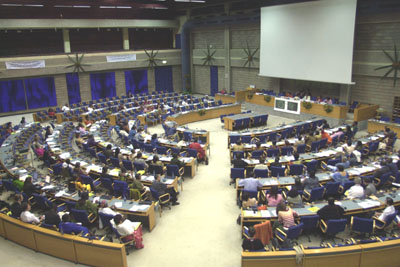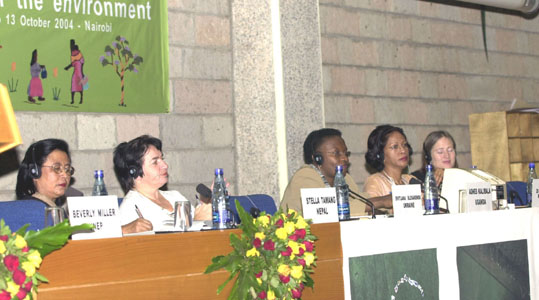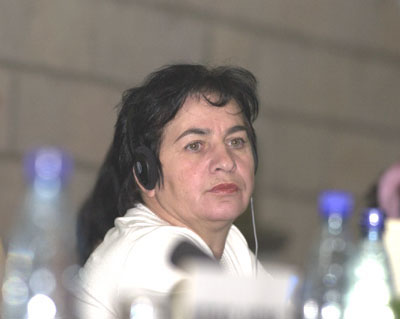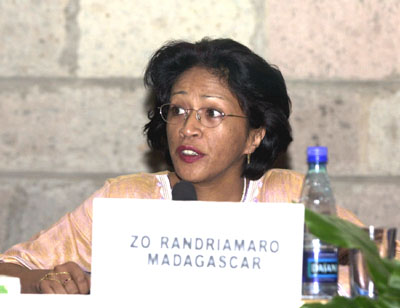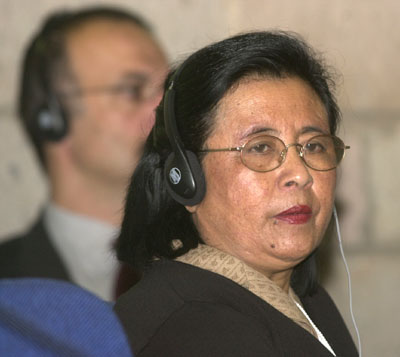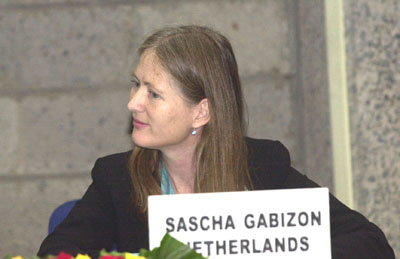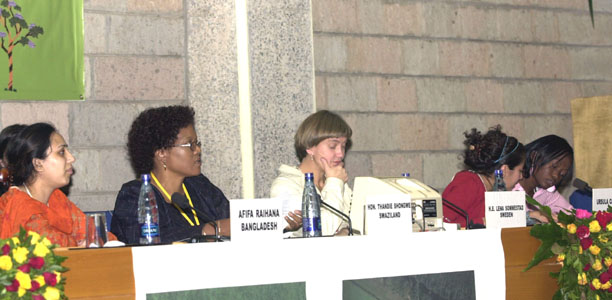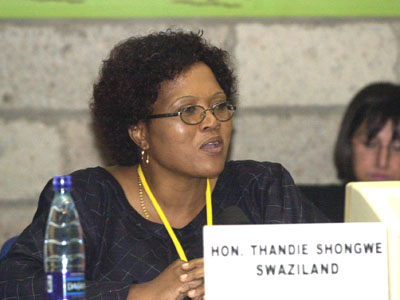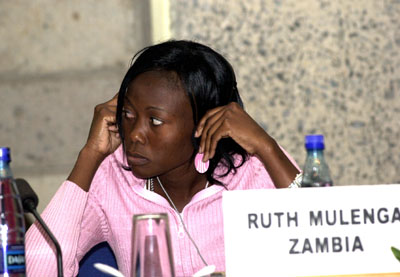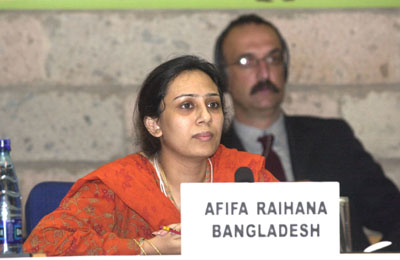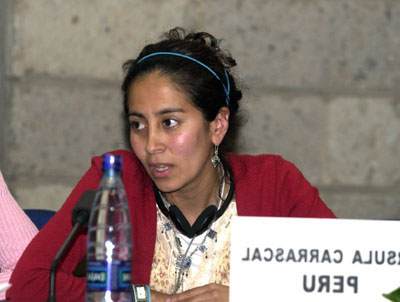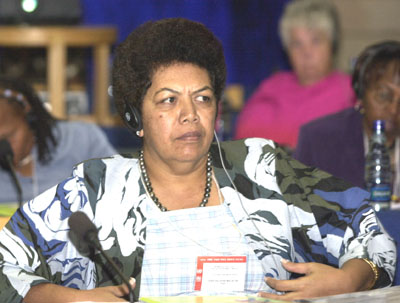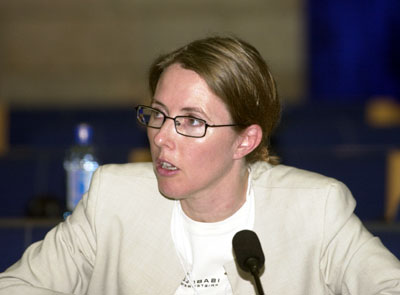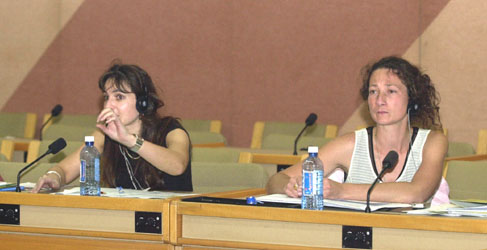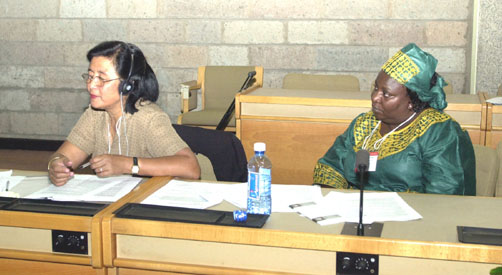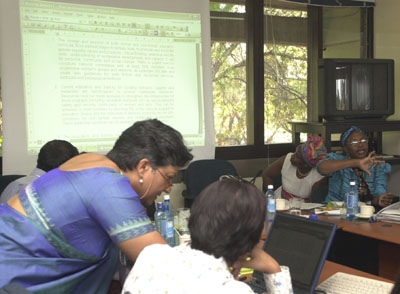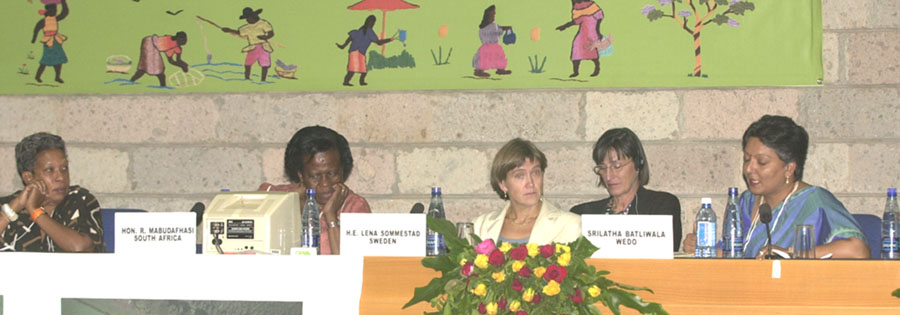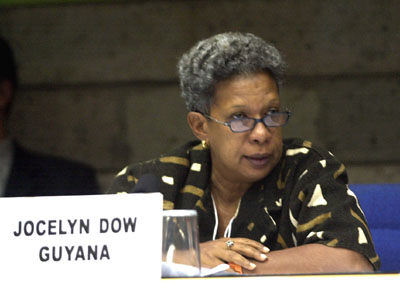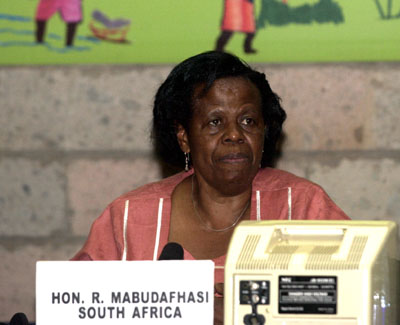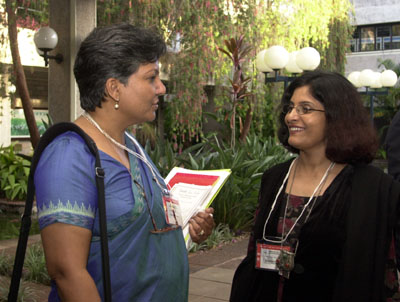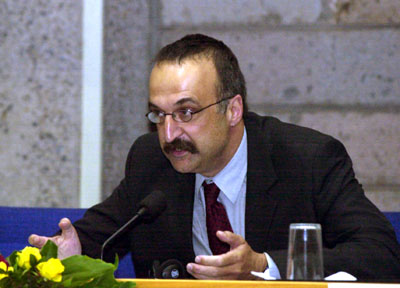 |
 |
|
|
WAVE
(Women As the Voice for the Environment)
11-13 October 2004 | Nairobi, Kenya |
| |||||||||||||||||||||||||||||
Highlights for Tuesday 12
October 2004
On
the second day of the WAVE meeting, participants met in morning
roundtable sessions to discuss women's rights, poverty and
health, and starting a mentorship programme. In the afternoon,
WAVE participants continued drafting recommendations and project
ideas in various working sessions. At the end of the day,
participants met in a joint plenary session to discuss the
recommendations drafted by the Network of Women Ministers for
the Environment, which will be sent to sessions including the
23rd UNEP
Governing Council/Global Ministerial Environmental Forum
and the 13th session of the Commission on Sustainable
Development-13.
Above photo: Bird's eye view of the WAVE plenary session.
Roundtable II: Women's rights, environment, poverty, and health |
Above photo: The dais
during the Roundtable on Women's rights, environment and
health include Stella Tamang, Indigenous Women,
Nepal; Svitlana Slesarenok, MAMA-86, Ukraine; Agnes
Kalibala, Uganda; Zo Randriamaro, Madagascar
and Sascha Gabizon, Women in Europe for a Common
Future.
![]()
![]()
Zo Randriamaro, Madagascar, said that neoliberal
globalization in Africa builds on a history of slavery,
colonialism and exploitation, with definite gender
dimensions.
![]()
Stella Tamang,
Indigenous Women, Nepal, said that indigenous
communities need to know how to protect themselves from
commercial predators.
![]()
Sascha Gabizon, Women in Europe for a Common Future,
urged women's groups to spend at least one dollar on
women's projects for every dollar spent on
conferences.
Above photo: In
the morning session, WAVE participants discussed
"Starting a Mentorship Programme – A world in need
of female leadership." From left to right: Afifa
Raihana, STEP, Bangladesh; Thandie Shongwe,
Minister of Environment, Swaziland; Lena Sommestad,
Minister of Environment, Sweden; Ursula Carrascal
Vizarreta, VIDA, Peru; and Ruth Mulenga, UNEP
Youth Council, Zambia.
|
|
|
|
|
|
|
|
Mona Mejsen Westergaard (Denmark) advocated the inclusion in the Manifesto of a call to multinationals to take on social and environmental responsibility.
|
Enhancing
Global Linkages: Indigenous and local women's
perspective on sustainable development
Participants
stressed the need to highlight governments' obligation
to collaborate with indigenous peoples.
Above photos L-R: Marcela Tovar, WEDO, Laetitia
Zobel,
UNEP, Stella Tamang, Indigenous Women, Nepal, and
Lucy Mulenkei, International Indigenous Network
(IIN).
Capacity Building and Education:
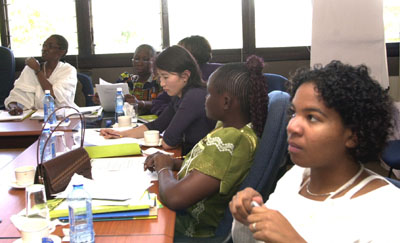 |
|
|
|
|
Plenary:
![]()
WAVE participants
discussed draft recommendations on informal and formal
education sectors in the capacity building and education
working group session.
Above photo: Jocelyn Dow, Red
Thread Women's Development, Rejoice
Mabudhafhasi, Deputy Minister for Environmental
Affairs and Tourism, South Africa, Lena Sommestad,
Minister of Environment, Sweden, Viveka Bohn,
Sweden, and Srilatha Batliwala, WEDO
![]()
Jocelyn Dow, Red Thread Women's Development,
Guyana, commended participants for having carried out
their responsibilities as women.
![]()
Rejoice
Mabudhafhasi, Deputy Minister for Environmental
Affairs and Tourism, South Africa, encouraged the
involvement of the media in women's communication
strategies.
Srilatha Batliwala,
President of WEDO, India, highlighted the need for new
resources to do the work that governments cannot.
Olivier Deleuze,
UNEP thanked the Ministers and participants for
their participation and enthusiasm.
| Related Links |
|
|
